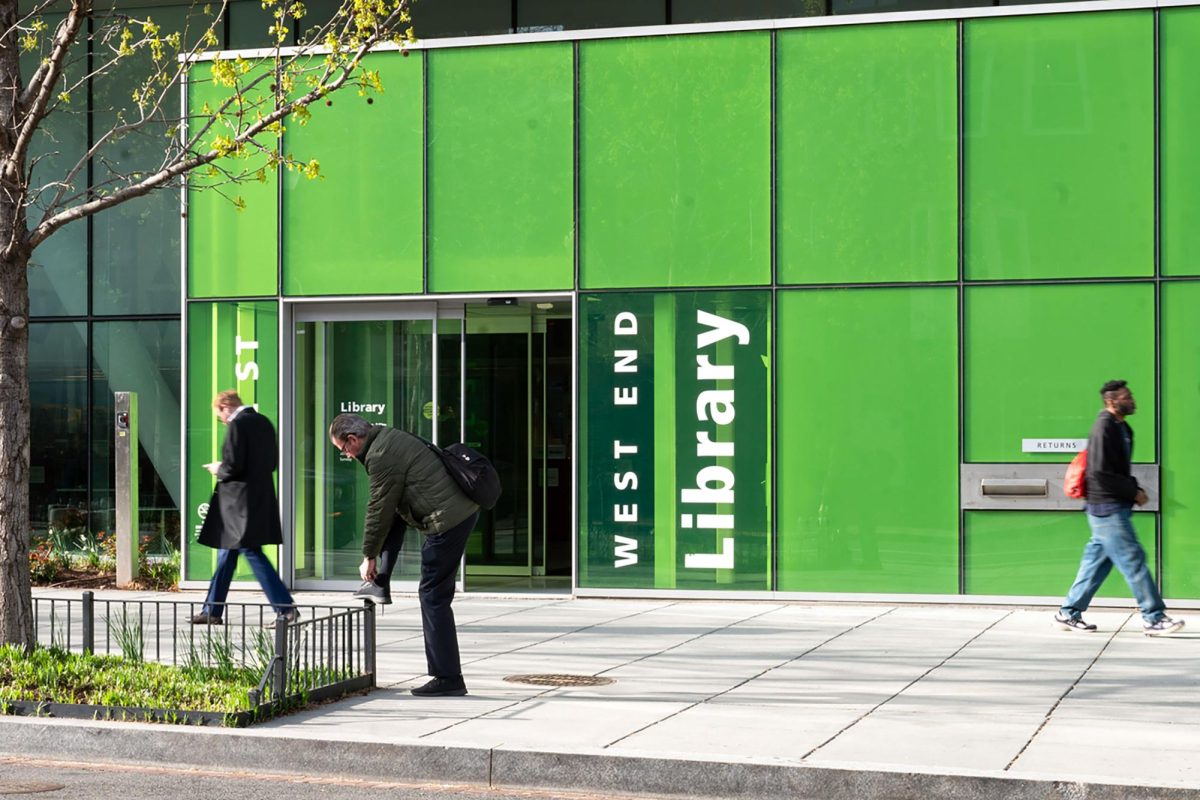It’s a mad dash for the library meeting rooms.
Members of the Foggy Bottom Advisory Neighborhood Commission have struggled to offer both in-person and virtual options at its West End Library meetings. ANC Chair Jim Malec, who is now tasked with running the meetings, said he has struggled with technological difficulties like setting up microphones as well as wrapping up the meeting by the library’s agreed-upon 10:30 p.m. meeting cutoff time.
Commissioners will host an exclusively online meeting in April for the first time since July 2022, when it was online for the pandemic. While the commission will likely return to its home in the West End Library in May, some commissioners are considering alternative meeting locations.
“I really just fundamentally believe in the value of in-person meetings,” Malec said. “I think that the public has a right to come meet their representatives face-to-face.”
The ANC has hosted meetings at the West End Neighborhood Library since the building’s redevelopment in 2017 after previously meeting in GW classrooms. The ANC has a small storage room in the library for their audiovisual equipment, which was agreed upon during redevelopment. ANC regularly hosts its meetings in a back room of the library where commissioners sit at a panel of desks that face about two dozen chairs for attendees.
The ANC usually begins its monthly meetings at 7 p.m., one hour before the West End Library’s 8 p.m. closing time. But balancing the library’s 10:30 p.m. meeting cutoff and the legislative items on agendas has proved challenging for the body. The ANC adjourned its January meeting at 10:37 p.m., and in November, they ended at 10:42 p.m.
Commissioners said public comment periods and lengthy agendas often push meetings past the three-and-a-half-hour mark.
Malec said he has had informal conversations with library staff since the fall, agreeing to end ANC meetings at an earlier time to accommodate library police’s schedules, but he has not received a formal request from the library about the meeting cutoff times. He said consistently using the library space as the ANC’s meeting location makes it easier for members of the public to attend because community attendees will not need to search through public notices to find different meeting locations.
Malec said he “wouldn’t necessarily be opposed” to hosting special and informal meetings in other spaces without the cutoff time and with a smoother technology setup.
The ANC held an informal goal-setting meeting at GW’s School of Media & Public Affairs building in January.
“We have a good relationship with the library,” Malec said. “We’re very thankful of their flexibility.”
The Foggy Bottom Association, a local community organization, switched from fully virtual to hybrid meetings in various neighborhood locations, including the library, in February. FBA President John George said the group now starts its meetings an hour earlier, from 7 to 6 p.m., to ensure meetings are over by the library’s required time, but he has not noticed a dip in meeting attendance, which has stayed at about 30 to 40 total attendees across in-person and virtual platforms.
“We knew that the library had capacity to do it,” George said.
George said before the pandemic, the group held its meetings fully in person at various locations, including GW, the library and School Without Walls. He said at the February meeting, a presenter from the new AKA Hotel expressed interest in meeting people face-to-face during in-person meetings, which the group had been considering prior.
George said the group may change its meeting locations and will hold its April meeting at the Elliott School of International Affairs to accommodate University President Ellen Granberg’s schedule so she can attend. He said at a prior meeting, library staff assisted him in setting up the technology for their hybrid meeting.





